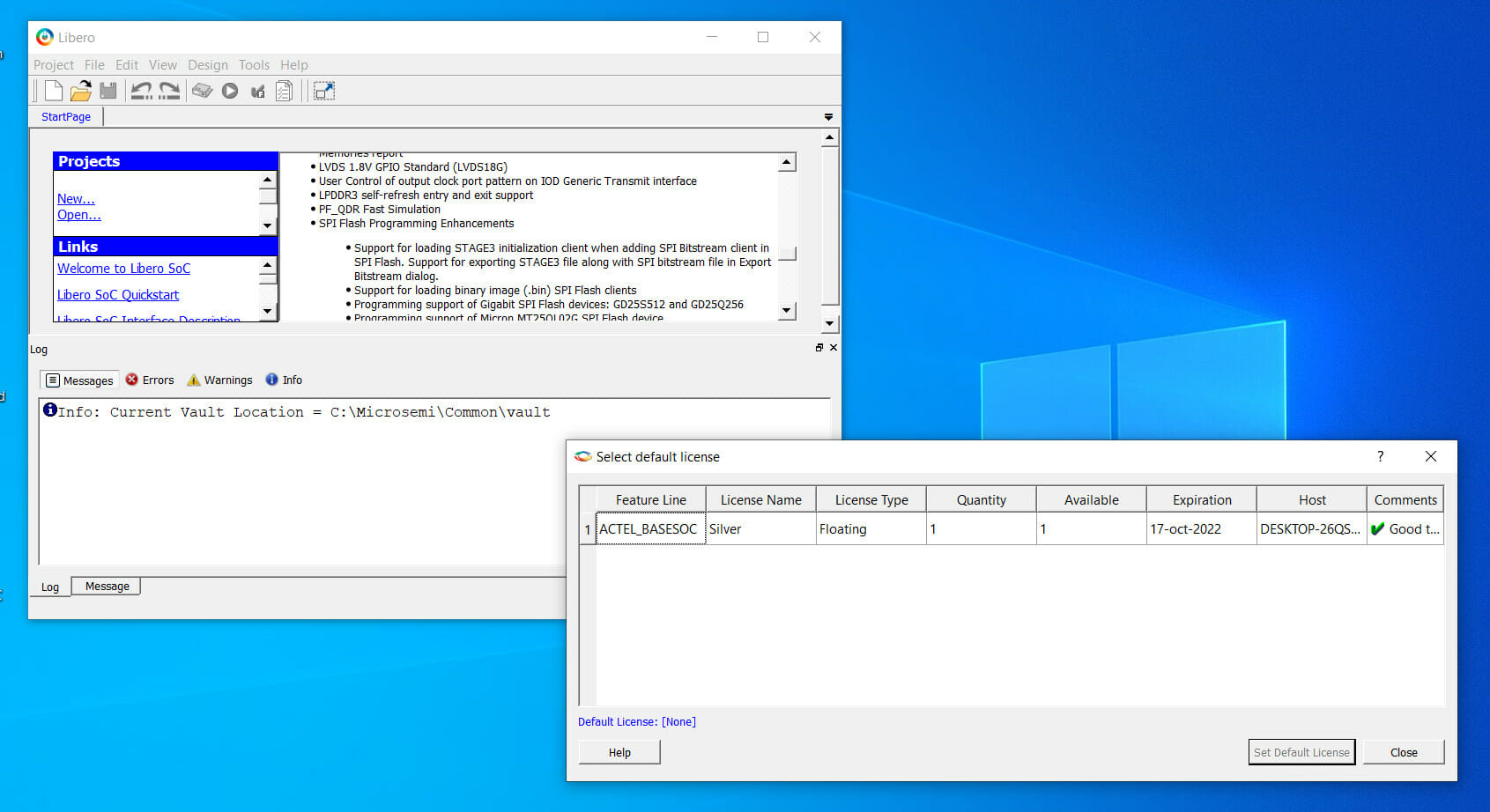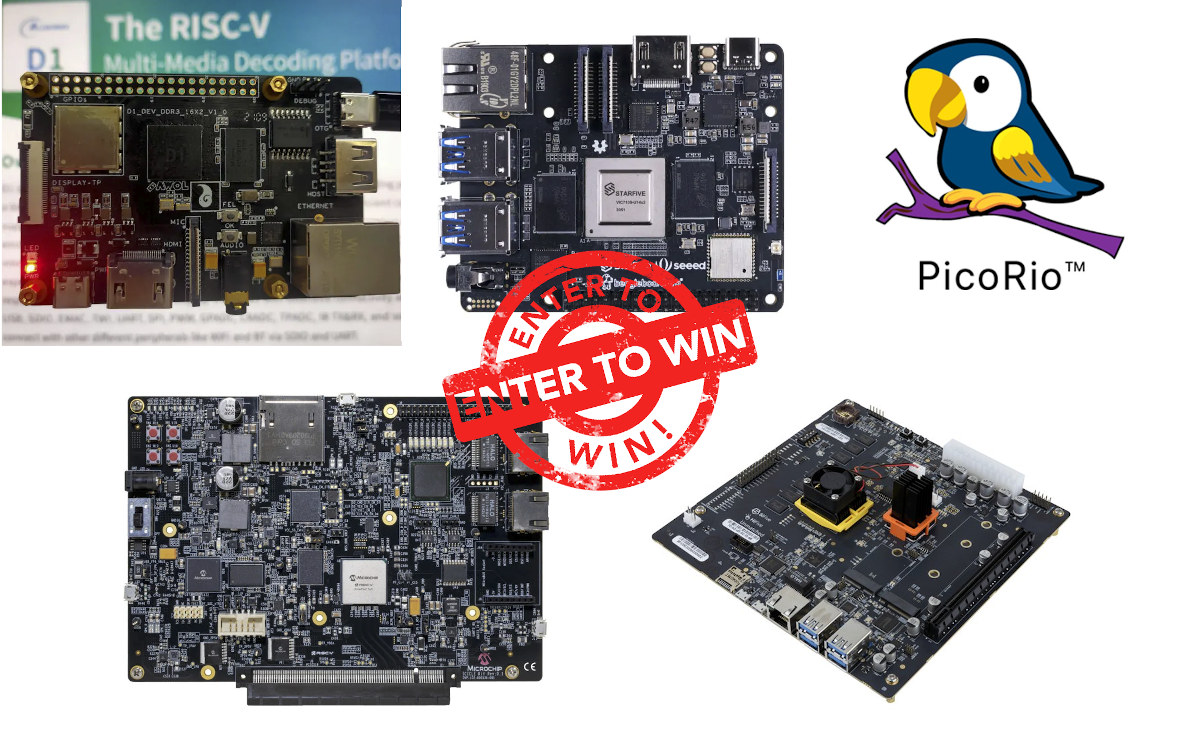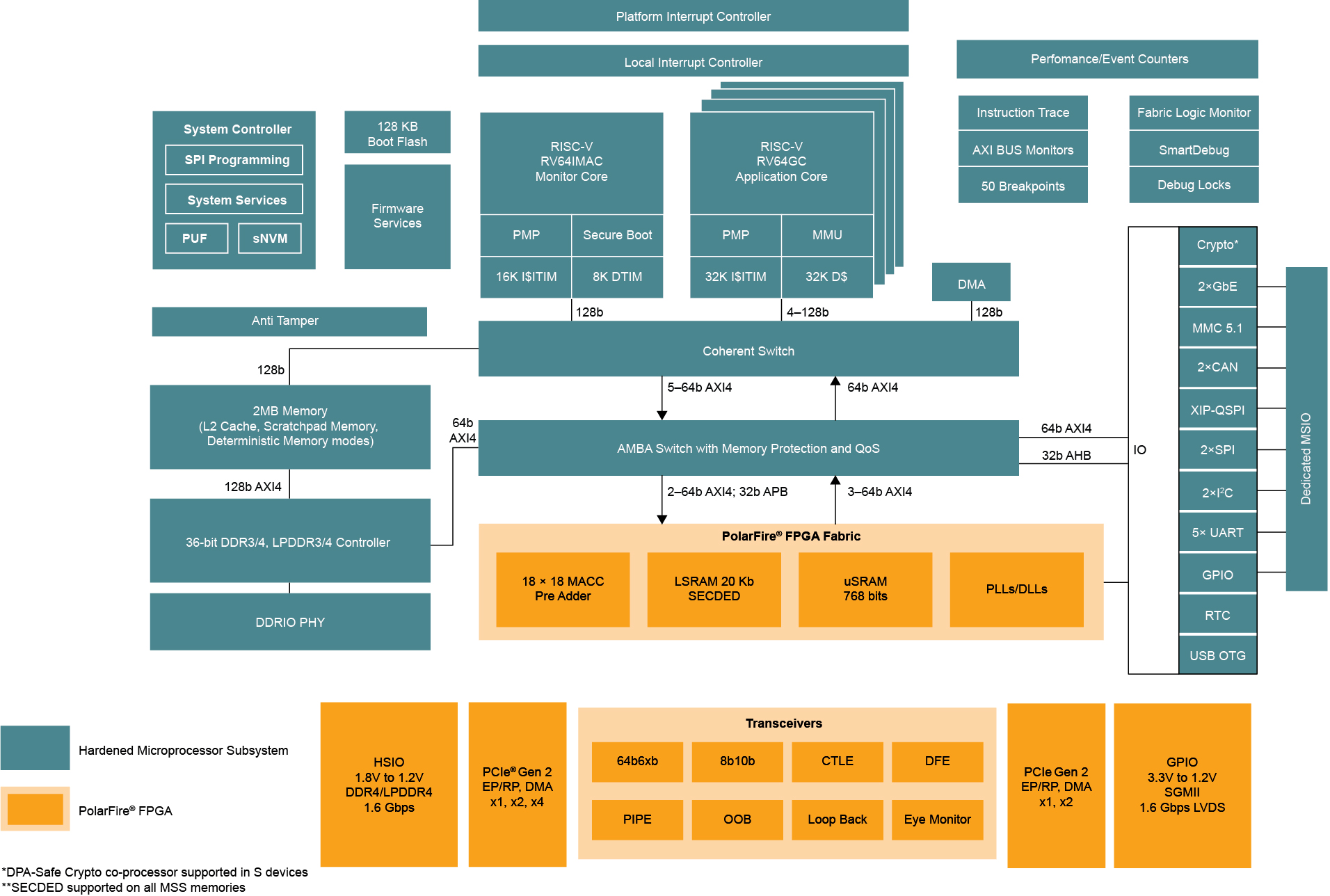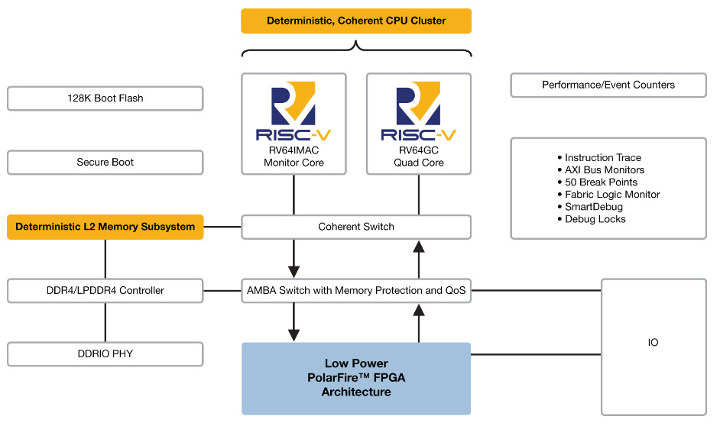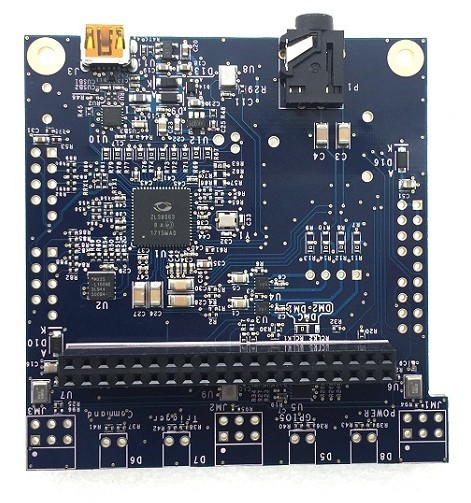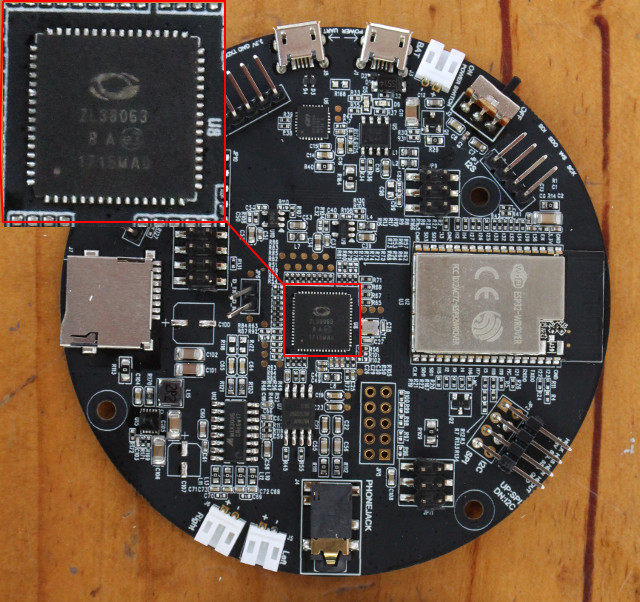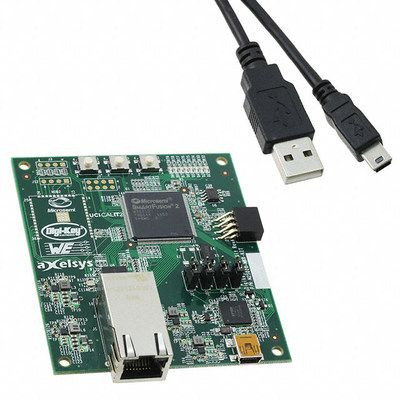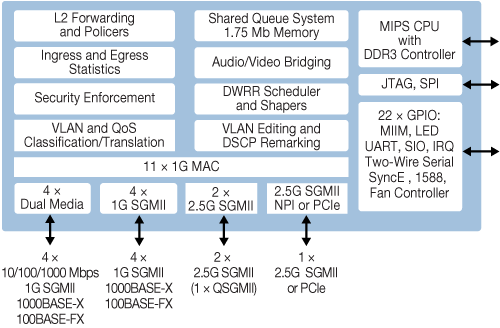A few weeks ago, I received Microchip PolarFire SoC FPGA Icicle Kit with FPGA fabric and hard RISC-V cores capable of handling Linux. I wrote “Getting Started with Yocto Linux BSP” tutorial for the board, and I had initially titled the current post “Getting Started with FPGA development using Libero SoC and Polarfire FPGA SoC”. I assumed I would write one or two paragraphs about the installation process, and then show how to work with Libero SoC Design Suite to create an FPGA bitstream. But instead, I spent countless hours trying to install the development tools. So I’ll report my experience to let readers avoid some of the pitfalls, and hopefully save time. (Failing to) Install Libero SoC v2021.v2 on Ubuntu 20.04 If we go to the download page, we’ll see Libero SoC v2021.2 for Windows and Libero SoC v2021.2 for Linux. Since my computer is running Ubuntu 20.04, I decided […]
RISC-V International to give away 1,000 RISC-V development boards
The best way for a new platform to get good software support is to bring hardware into the hands of developers. That’s exactly what RISC-V International is doing by inviting developers to sign up for a RISC-V developer board sponsored by RISC-V and contributing members. There are 1,000 boards on offer with 1GB to 16GB RAM depending on the target project from five companies and organizations namely Allwinner, Beagleboard.org, SiFive, Microchip Technology (previously Microsemi), and RIOS. Here are the stated goals of the giveaway: Spur innovation Enable new opportunities for the next generation of developers to work with the RISC-V ISA Provide a platform For testing To write programs that run on RISC-V Develop software Integrate existing software stacks Optimize ecosystem software Share feedback on the product such as ease to integrate software stacks, develop and test extensions, etc. The company did not provide an exact list of development board […]
RISC-V based PolarFire SoC FPGA and Devkit Coming in Q3 2020
Microsemi unveiled PolarFire FPGA + RISC-V SoC about one year ago, but at the time, development was done on a $3,000 platform with SiFive U54 powered HiFive Unleashed board combined with an FPGA add-on board from Microsemi. I’ve now been informed that Microchip has announced its Linux-capable PolarFire FPGA+RISC-V SoC would start shipping in Q3 2020 at the RISC-V summit and that a development kit will be sold for a few hundred dollars. PolarFire SoC FPGA PolarFire SoC FPGA key features and specifications: Mid-Range FPGA optimized for Low Power High-speed serial connectivity with built-in multi-gigabit/multi-protocol transceivers from 250 Mbps to 12.7 Gbps Up to 461k logic elements consisting of a 4-input Look-Up Table (LUT) with a fracture-able D-type flip-flop Up to 31.6 Mb of RAM Power optimized transceivers Up to 1420 18 × 18 multiply-accumulate blocks with hardened pre-adders Integrated dual PCIe for up to ×4 Gen 2 Endpoint […]
MicroSemi Introduces PolarFire FPGA & RISC-V SoC
In the past we’ve covered SoCs comprised of Arm cores and FPGA fabric via Xilinx Zynq-7000 series SoCs and Zynq UltraScale+ series MPSoCs, respectively featuring up to two Arm Cortex A9 cores, and up to four Cortex A53 cores. MicroSemi has now announced an alternative, not based on Arm cores, but instead based on SiFive U54-MC RISC-V cores combined with PolarFire FPGA fabric. PolarFire FPGA RISC-V SoC key features & specifications: FPGA – Microsemi PolarFire FPGA Processor Cores – Up to 4x SiFive U54-MC RISC-V cores clocked at up to 1.5GHz (performance similar to Cortex-A35 cores); 28nm process Deterministic Coherent Multi-core CPU Cluster Deterministic L2 Memory Subsystem System Memory I/F – Integrated DDR4/LPDDR4 Controller and PHY Storage – Secure Boot, 128K Boot Flash Debug capability Rich I/Os Low Power – Low static power; power optimized transceivers, up to 50% lower power compared to SRAM based FPGAs So we don’t have […]
Banana Pi BPI-AI-Voice is a $169 Speech Recognition Development Kit based on MicroSemi ZL38063
SinoVoIP has just launched BPI-AI-Voice development platform for speech recognition on Aliexpress for $169, and excluding the different PCB color, it is a clone of the official $299 Microsemi AcuEdge Development Kit for Amazon AVS, which is based on MicroSemi ZL38063 audio processor and comes with two microphones. BPI-AI-Voice key features: Audio Processor – MicroSemi ZL38063 Storage – U2 SPI flash to store ZL38063 firmware Audio 4x on-board digital microphones (AKU441) supporting a 2 microphone configuration for 180° and 360° audio pick-up. 2x low cost class D audio amplifier (NCP2820) Expansion Headers JMMA1 audio header for digital microphone, analog out, and 3 GPIOs JM1-4 digital microphone headers for off-board microphones 40-pin P2 header to connected to Raspberry Pi 3 (I2S, SPI and 8x GPIO used) Debugging – JAIB2/2 auto tuning headers, micro USB port. Power Supply – 5V via micro USB port Dimensions – 70 mm × 66 mm Temperature […]
MicroSemi ZL38063 Audio Processor is Designed for Microphone Arrays
I’ve already been experimenting with DIY smart speakers and corresponding services for example using ReSpeaker board with Microsoft Bing Speech API, or Orange Pi Zero with Google Assistant SDK. But so far all the hardware platforms I used only came with one microphone, no microphone array that help with wake word detection in noisy environments. Last week-end, I received Espressif Audio Mic HDK, an ESP32 board with a 3-microphone array which I’ll review a in a few weeks once documentation becomes available and I clear some other items in my review list. In the meantime, I checked out the hardware, and found out the mainboard also comes with Microsemi ZL38063 audio processor specifically designed for microphone array. The chip was released las year, and can be already found in the company’s AcuEdge Development Kit for Amazon AVS, but since I’m going to use a board based on ZL38063 I’d thought […]
$34 SmartFusion2 Maker Board Arm Cortex-M3 + FPGA Board Supports ESP32 & ESP8266 Modules
Xilinx Zynq SoCs are probably the most well-known FPGAs with ARM cores, as their Cortex A9/A53 cores can run Linux, but they are not the only ones. Microsemi launched SmartFusion2 SoC comprised of FPGA fabric and an Arm Cortex-M3 core in 2013, as well as a $300 development kit. The company has now partnered with Digikey to launch SmartFusion2 Maker Board, a low-cost evaluation platform for the SoC that comes with Gigabit Ethernet, a USB port, a connector for ESP8266 module, PCB footprint for ESP32 module, among other features like a light sensor, LEDs, and buttons. SmartFusion2 maker board (M2S010-MKR-KIT) main features & specifications: SoC – Microsemi SmartFusion2 M2S010 SoC with: Arm Cortex-M3 @ 166 MHz, 6oKB+80KB eSRAM, 256KB eNVM FPGA with 12,084 logic element, 400 Kbits RAM Storage – 16 Mbit SPI Flash Connectivity Gigabit Ethernet via VSC8541 PHY, RJ45 connector Connector for ESP8266 (Sparkfun WRL-13678 – not included) […]
Microsemi VSC7513 and VSC7514 MIPS SoCs for Ethernet Switches Get Initial Mainline Linux Support
Microsemi VSC7514 is a 10-port Gigabit Ethernet (GbE)/SMB switch supporting a combination of 1G and 2.5G Ethernet ports, and VSC7513 comes with basically the same features except it’s limited 8 ports. Both SoCs include a MIPS processor with DDR3 memory interface, and support industrial and enterprise Ethernet switching features such as VLAN and QoS processing. Microsemi VSC751x Ocelot family was unveiled in June 2016, but I only heard about them today, as Free Electrons recently added initial support for VSC7513 & VSC7514 chip into mainline Linux with the patch series available here. Microsemi VSC7514 specifications & features: CPU / Memory Interface – Integrated 500 MHz MIPS 24KEc CPU with MMU and DDR3/DDR3L SDRAM controller Ethernet Connectivity – 4x dual media copper ports, 2x 1G SGMII ports, and 2x 1G/2.5G SGMII ports Host CPU Interfaces – PCIe 1.x and NPI CPU interface Internal shared memory buffer (8 queues per port) Jumbo […]


